podcast 356 – Seminary student takes Trinity class, becomes unitarian – Part 1
“I had come to this belief truly just through studying the Word.”
“I had come to this belief truly just through studying the Word.”
“For all its complexity, the biblical doctrine of the Trinity can be stated in seven simple propositions.”
Theologian Roger Olson asks, How important is the doctrine of the Trinity? He seems to hold, with many others, that …the doctrine of the Trinity is crucial, essential, indispensable to a robust and healthy Christian view of God. But, The problem is, of course, that many, perhaps most, Christians have little or no understanding of the doctrine of the Trinity. And they couldn’t care less. Indeed.… Read More »Roger Olson asks: How important is the doctrine of the Trinity?
Here. It’s an excellent, substantial discussion, posted in December 2014. If you don’t know who Dr. Rea is, he’s a leading Christian philosopher, specializing in metaphysics, and co-coiner of the useful term “analytic theology.” Here’s a rough guide to the interview, in case you want to skip around, or review after the fact, with a few sparse comments in italics. 1-12:20 Randal reads quotes about how difficult a… Read More »Dr. Randal Rauser interviews Dr. Michael C. Rea on the Trinity
The poll below is an interesting one. (The bogus one to the left is only fun, but not interesting.) As I write this post, it is still current, and is available for voting at the upper right of the main blog page. Which of these is false? The Christian God is a self. The Christian God is the Trinity. The Trinity is not a self.… Read More »Comment on a Poll – an inconsistent triad
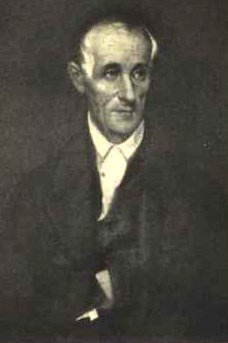
What, if anything, is wrong with with the strategy of Resolution through Rational Reinterpretation? And why are most theologians so cold towards this strategy, while most Christian philosophers love it? Consider this quote by Moses Stuart on one of Leibniz’s takes on the Trinity:
The celebrated Leibniz was requested by a Loefler, who had undertaken to refute the writings of a certain English Antitrinitarian, to give him an affirmative definition of the persons in the Godhead. He sent for answer the following: – “Several persons in an absolute substance numerically the same, signify several, particular, intelligent substances essentially related.” On farther consideration, he abandoned this, and sent a second, which was, – “Several persons, in an absolute substance numerically the same, mean relative, incommunicable modes of subsisting.”
If Leibniz actually understood this, I believe he must have been a better master of metaphysics than any person who has ever read his definition.Read More »Dealing with Apparent Contradictions: Part 8 – Rational Reinterpretation, cont.
This should be interesting. Mr. Qureshi (a PhD student in theology) is the author of the fascinating book Seeking Allah, Finding Jesus (kindle). He’s a convert from Ahmadiyya Islam to evangelical Christianity. He is bold, smart, and clear. Dr. Ally is an erudite and well-spoken Islamic apologist and an experienced debater. In the press release for this live-streamed, April 8, 2015 debate, Mr. Qureshi says that My goal… Read More »Qureshi vs. Ally – Trinity vs. Tawhid
A trinitarian evangelical Bible scholar comments on the subordinationist theologies both of Arius and of his accusers.
Applying the methodology… can we answer the question?
In this episode I review the first portion of a recent debate/discussion between Dr. Bart Ehrman and Dr. Michael Bird, held at the at the 2016 Greer-Heard Point Counter Point Forum in February 12-13, 2016 at the New Orleans Baptist Theological Seminary.
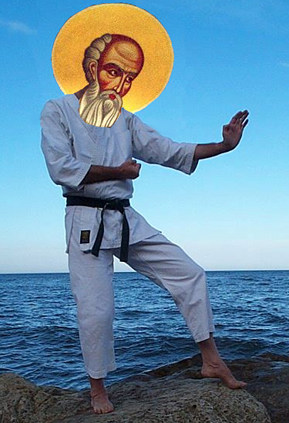 Philosopher Graham Priest is notorious for his claim that there are true contradictions. I have to confess that when I first heard this years ago, I thought the people telling me were pulling my leg. But, they were not. Priest is deadly serious, and has developed paraconsistent logics – logical systems which allow some true contradictions. And he’s vigorously defended his claims against all comers, as in this recent book.
Philosopher Graham Priest is notorious for his claim that there are true contradictions. I have to confess that when I first heard this years ago, I thought the people telling me were pulling my leg. But, they were not. Priest is deadly serious, and has developed paraconsistent logics – logical systems which allow some true contradictions. And he’s vigorously defended his claims against all comers, as in this recent book.
No, he doesn’t say that all contradictions are true – only some of them. And the ones which are true are also false. He claims that this thesis of dialetheism solves the liar paradox and others.
Very rarely, some theologian will come along, and assert that the Trinity doctrine is a true contradiction – not a merely apparent contradiction, but a real one.
Most Christians, though, eschew such a claim. Mysterian James Anderson discusses and rejects this approach to Christian mysteries in his book Paradox in Christian Theology.
Much to my surprise, I recently found a move like Priest’s in Gregory of Nazianzus (d. c. 390), in his Third Theological Oration.
Gregory is considering an argument by Arians, a premise of which is that the Son who the Father begot either was or was not in existence – I take it, prior or “prior” to his being begotten. (It is clear at the end of this section that Gregory takes them to mean literally before.)
Gregory asserts that this claim “contains an absurdity, and not a difficulty to answer.” He then gives a non-too-clear time example, which I’ll skip. Then he argues,
…in regard to this expression, “I am now telling a lie,” admit one of these alternatives, either that it is true, or that it is a falsehood, without qualification (for we cannot admit that it is both). But this cannot be. For necessarily he either is lying, and so is telling the truth, or else he is telling the truth, and so is lying. What wonder is it then that, as in this case [of the liar paradox] contraries are true, so in that case [concerning the Arians’ premise above] they [i.e. both alternatives] should both be untrue, and so your clever puzzle prove mere foolishness?
I take it that the “contraries” he mentions would be: “the man is lying” and “the man is telling the truth”. Contraries are often defined nowadays – I’m not sure how they were defined in his day – as claims that can’t both be true. But here, Gregory asserts that both are trueRead More »Gregory of Nazianzus – an early dialetheist? (Dale)
In his sixth and final installment of the debate, Bowman turns in his finest performance, making a number of interesting moves, and getting some glove on Burke. First, he tweaks his formula (here’s the previous version): The doctrine of the Trinity is biblical if and only if all of the following propositions are biblical teachings: One eternal uncreated being, the LORD God, alone created all… Read More »SCORING THE BURKE – BOWMAN DEBATE – ROUND 6 Part 2 – Bowman
Can these obvious truths pop the bubbles of various theological and christological speculations?
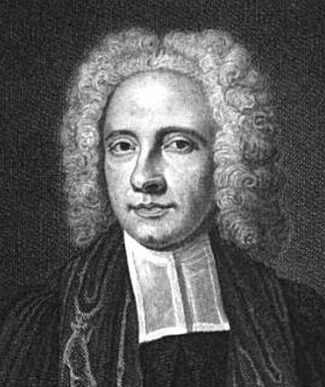
Daniel Waterland (1683-1740) was by all accounts the most important disputant of Samuel Clarke about the Trinity.
Waterland spent his career at Cambridge, where he rose through the ranks, eventually becoming Vice-Chancellor, and also serving as a Chaplain to the King, and as an Anglican clergyman in a number of cities.
He had a good reputation, and was an energetic, but normally cool-headed controversial/polemical writer (aganist Clarke, and other other theological topics, against other respected men), and he gained somewhat of a reputation in Anglican circles as a defender of catholic orthodoxy.
Many, including himself, contemplating his becoming a bishop, but in 1740 he died after complications, seemingly, from surgeries on an ingrown toenail in one of his big toes! He was survived by his wife of 21 years. (His only children were his books.)
I’d describe Waterland’s views on the Trinity as social, with a liberal dose of negative mysterianism. Like Clarke, he insists that his is the ancient catholic view, and much of the dispute concerns pre-Nicene fathers. Like Clarke, he wants to stick to those fathers and to the Bible, and takes a dim view of medieval theology.
About the pre-Nicene catholic “fathers,” I’d say both Clarke and Waterland somewhat bend the material to their own ends (I mean, they tend to see those authors as supporting their view, and being perhaps more uniform than they were), but I think Waterland bends the materials more. In his view, catholics had always believed the Three to be “consubstantial” in a generic sense, yet which, somehow, together with their differences of origin, makes them but one god. Like Swinburne and Clarke, he agrees that the Father is uniquely the “font of divinity.” He continually hammers Clarke with the claim that there’s no middle ground between the one Creator and all creatures.
In this series, I’ll examine the way he deals with some favorite unitarian proof-texts, which, unitarians think plainly assert the numerical identity of the Father with the one true God, Yahweh. According to Waterland, these unitarians are making a mistake like the one I made.
You [i.e. Clarke] next cite John 17:3, 1 Cor. 8:6, Eph. 4:6, to prove, that the Father is sometimes styled the only true God; which is all that they prove. Read More »Daniel Waterland on “The Father is the only God” texts – Part 1
 At long last, we’ve reached the 25th and last chapter of book three of Richard of St. Victor’s De Trinitate! (Here are the other Richard-related posts here @ trinities.)
At long last, we’ve reached the 25th and last chapter of book three of Richard of St. Victor’s De Trinitate! (Here are the other Richard-related posts here @ trinities.)
Richard starts off with the point that for the Persons of the Trinity, unlike the case of any other persons, there is “individuality without plurality” – each is what it is without any plurality of any kind – and “unity without inequality” – I’m not sure what he means by this second phrase. (p. 396)
In contrast, any other person, such as you or me, can be “unequal to himself”, in that we can become greater or lesser over time. (e.g. I’m smarter and morally better now than when I was 14.) And persons like us have multiple properties (we’re not simple). (p. 396) And of a human person, say Barak Obama, we can say that “his power alone is dissimilar to itself… [since] one thing is easy for him, another is difficult and a third is impossible.” (p. 397)
Then he says, “one and the same nature… in one respect is less, in another it is greater, and [so is]… dissimilar and unequal to itself.” (p. 397) So, the same point he made about persons, can also be made about natures. Thus,Read More »Richard of St. Victor’s De Trinitate, Ch. 25 (Dale)
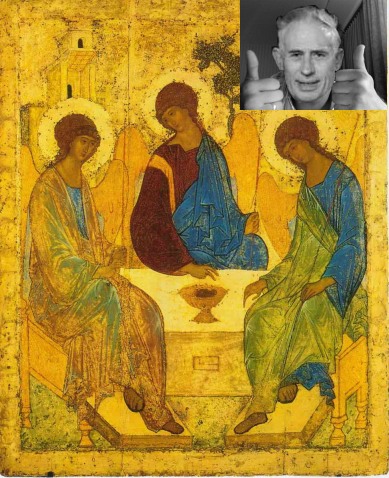
Swinburne sez: Two thumbs up for the social analogy!
Richard Swinburne is an Emeritus professor at Oriel College, Oxford University, and is widely considered one of the greatest living Christian philosophers. He’s done original work in philosophy of science, epistemology, philosophy of mind, and general metaphysics, but is perhaps best known for his work in philosophy of religion and philosophical theology. He has a way of squarely facing tough issues, and treating them in original and principled ways. He’s particularly well known by philosophers for his arguments for mind-body dualism, for his cumulative case for the existence of God, and for his bold social trinitarian theory, which I’ll cover in this series. Read More »Swinburne’s Social Trinitarian Theory, Part 1
 The Clarke-Waterland duel went on for many, many pages in several books, getting increasingly snippy.
The Clarke-Waterland duel went on for many, many pages in several books, getting increasingly snippy.
Last time I said that I thought Waterland was a social-mysterian-trinitarian. But I’m not so sure about the “social” part! He’s very unclear on whether the “Persons” are selves. They’re different somethings, in any case. But in this series, I’m sticking to an exegetical issue.
Here are excerpts of Waterland’s second salvo about the “only God” texts.
[Clarke] had produced John 17:3, 1 Cor. 8:6, Eph. 4:6, which prove that the Father is styled, sometimes, the one God, or only true God; and that he is the God of the Jews, of Abraham, etc. I asked how those texts proved that the Son was not? You say… “very plainly… Can the Son of the God of Abraham (Acts 3:13) be himself that God of Abraham, who glorified his Son?” But why must you here talk of that God, as if it were in opposition to this God, supposing two Gods; that is, supposing the thing is question. …I tell you that this divine Person is not that divine Person, and yet both are one God… (A Second Vindication of Christ’s Divinity in Waterland’s Vindications of Christ’s Divinity, 422-3, original italics, bold added, punctuation slightly modernized)
This is wheel-spinning. Clarke does, and Waterland does not take the passages in question to identity (assert to be numerically identical) the Father and Yahweh.
Clarke had asked whether Waterland thought that the term “Father” in these texts actually includes, i.e. refers to, the Son as well. Waterland clarifies,Read More »DANIEL WATERLAND ON “THE FATHER IS THE ONLY GOD” TEXTS – PART 2
 In chapter 24, Richard says that
In chapter 24, Richard says that
Certainly one and the same substance is not something greater or lesser, better or worse than itself. Therefore, [there are no inequalities among members of the Trinity] since one and the same substance is certainly in each. …for this reason any two persons [in the Trinity] will not be something greater or better than any one person alone; nor will all three taken together be more [great?] than any two or any one alone by himself… (p. 396)
I take it that in the first sentence here that by “substance” he’s referring to the divine nature, saying that it can’t be greater than itself. That’s hard to argue with. He then argues that no person can be greater than any other. There’s an assumption here that greatness is solely a function of a thing’s nature. I’m not sure why we should accept that. Why not other intrinsic properties as well? One might think, e.g. it is greater to be the Father than it is to be the Son, hence even though they share the divine nature, one might think that the Father is greater than the Son. The inference from X and Y have the same substance to X and Y are the same in greatness, seems invalid. But if we make a valid argument, by adding the premise that greatness is a function solely of essence, we have valid argument, but then, Read More »Richard of St. Victor’s De Trinitate, Ch. 24 (Dale)
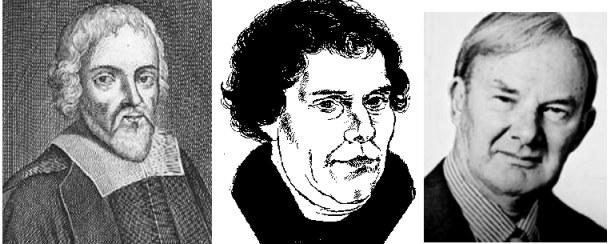
Unlike Redirectors, Revisers don’t change the subject. Unlike Resisters, they don’t claim we should just “live with the tension”. Unlike practitioners of Restraint, they don’t think we can put off the issue. Like Resolvers through Rational Reinterpretation, they have a solution. But they don’t think tricky, new, more careful formulations are what is called for. Rather, something must go out on the rubbish heap. Revisers are usually accused of arrogance, lack of respect for tradition, biblical ignorance, idolatry of human reason, not being Christians at all, and of hating babies and cute little puppies.
Open theists are RevisersRead More »Dealing with Apparent Contradictions: Part 20 – Resolution by Revision